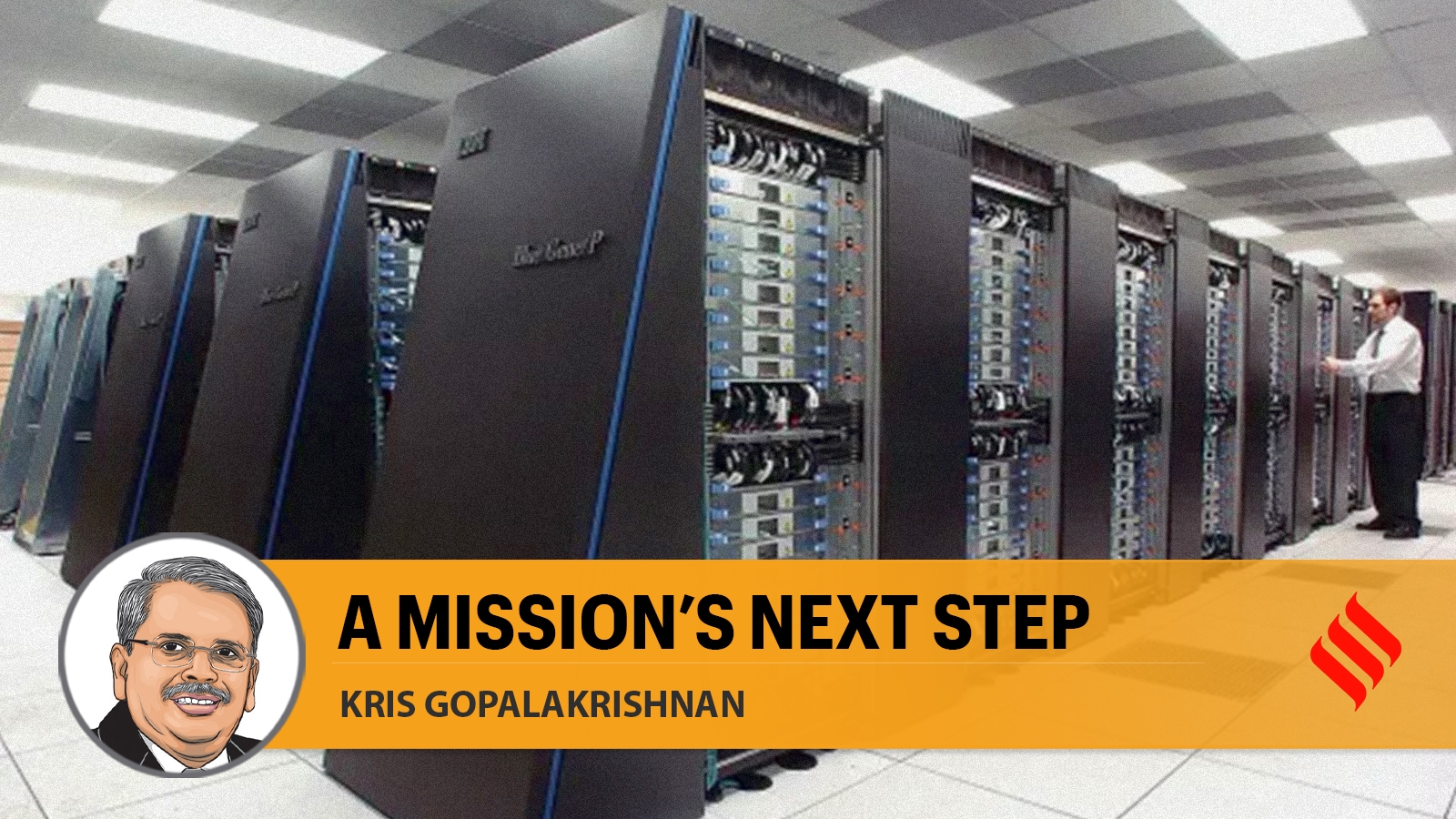What’s common to the following accomplishments — a drone swarm lighting the skies in coordinated splendour at the Beating Retreat ceremony at Rashtrapati Bhavan, the release of the first India-made commercial system-on-chip for secure IoT environments, the world’s first “Digital Entomologist”, and the creation of the first-of-its-kind testbeds in India for autonomous navigation and security operations of critical infrastructure?
All of them are successful outcomes from the Government of India’s Department of Science and Technology’s ambitious National Mission on Interdisciplinary Cyber-Physical Systems (NM-ICPS). Launched by Prime Minister Narendra Modi in December 2018 with a budget outlay of Rs 3,660 crore, it aims to establish India as a global leader in Cyber-Physical Systems (CPS) — merging the physical world with computational systems, driving breakthroughs in areas like AI/ML, robotics, cybersecurity, and autonomous navigation. What differentiates this Mission from similar others is its emphasis on translational research.
The Mission has adopted several innovative mechanisms such as the establishment of Technology Innovation Hubs (in 25 research and educational institutions in thematic domains) as separate Section 8 companies (to provide a purpose-focus and operational freedom) to translate existing research into high technology readiness level (TRL), market-ready products pertaining to national priorities. The results have been outstanding — in just six years, over 1,500 new technologies and tech products, from over 650 startups/spinoff companies have resulted in over 16,000 jobs and over 1,50,000 people trained in entrepreneurship.
Consider a few innovation hubs whose projects have resulted in critical tech infrastructure or applications. The IT-OT Security Operations Center (SOC) from C3iHub at IIT Kanpur offers 24/7 cyber threat protection, integrating advanced technologies like intrusion detection, malware analysis, and real-time risk assessment. Designed for both IT and OT assets across sectors such as power and water treatment and implemented at the National Highways Authority of India, it is 3x-5x more cost-effective than larger competitors. Built with homegrown components, the SOC is rigorously tested on India’s first industry-scale critical infrastructure test beds at IIT Kanpur.
TiHAN Foundation at IIT Hyderabad focuses on autonomous navigation for both aerial and terrestrial systems, offering a state-of-the-art testbed with advanced features like test tracks, rainfall simulators, and V2X communications. It supports applications for Autonomous Ground Vehicles (AGVs) and Unmanned Aerial/Surface Vehicles (UAVs/USVs) while collaborating with institutions like Texas A&M and Tata Technologies. With a technology readiness level of nine, TiHAN has published a “Testbed Manual” to aid commercialisation and offers flexible services for research, R&D, and certification to both academia and industry.
AWaDH at IIT Ropar is advancing cyber-physical systems to promote sustainable agriculture and water management. In collaboration with global partners like Syngenta and Fraunhofer Institutes, AWaDH has developed technologies such as the world’s first “Digital Entomologist,” an AI-powered Livestock Management System, and Nanobubble Technology for water treatment. Its solar-powered biodiversity sensors are deployed internationally, helping create the first Biodiversity Index of Farms across countries like Switzerland, Australia and the US.
Consider a few innovative startups that have emerged out of the innovation hubs. The I-Hub Foundation for Cobotics at IIT Delhi which fosters startups in AI, robotics, and healthcare, onboarded 26 startups in 2023-24 in areas like edtech, defence, and healthcare. A key success story is Botlabs Dynamics, now valued at over Rs 160 crore, which has commercialised drone-swarming technology in the defence and entertainment sectors. Another startup making a difference in the defence sector is COMRADO Aerospace from ARTPARK at IISc, which develops high-performance, cost-effective solutions for commercial and military applications, specialising in UAVs for high-altitude, long-endurance surveillance and cargo delivery in extreme weather.
Mindgrove Technologies, incubated by the Pravartak Technology Foundation at IIT Madras, is a semiconductor company developing open-source RISC-V-based System-on-Chips (SoCs). Its flagship product, Secure IoT, is India’s first commercial chip designed for secure IoT environments, used in smart devices like smartwatches, connected meters, and EV battery management systems. Built on the Shakti Processor from IIT Madras, the chip offers a 30 per cent cost advantage over competitors. Ayu Devices at the TIH Foundation for IoT & IoE at IIT Bombay has developed AyuSynk, a digital stethoscope that revolutionises primary healthcare by offering a user-friendly, affordable diagnostic tool. This Bluetooth-enabled device amplifies sound up to 60 times and allows real-time transmission, recording, and sharing of heart and lung sounds, improving early detection and clinical decision-making.
Some of the other innovative and market-ready tech products include domain-based Legal LLM for the enterprise (High Court of Punjab and Haryana) by iHub and HCI Foundation, IIT Mandi, iRASTE (Intelligent Solutions for Road Safety through Technology & Engineering) by iHub Data, IIIT Hyderabad, digital museum by iHub Drishti, IIT Jodhpur, and TARS, Plug and Play Modular Electronics offering by Vishlesan I hub Foundation, IIT Patna.
What’s next for the Mission?
The innovation hubs are expected to move towards self-funding through commercialisation as part of their financial autonomy journey. Indian industry has a significant role to play here. They should fund and co-create their next innovations from these hubs. In fact, their employees can also work out of these hubs so that they are closer to the researchers and entrepreneurs. As part of the 100-day agenda of the government, the Mission is also launching a unique project “Generative AI for Bharat” at IIT Bombay, a collaborative effort between the public, private, and academic sectors to develop multilingual (22 Indian languages) and multimodal (speech, text, and vision) foundational models. NM-ICPS’ success will play a pivotal role in positioning India as a global leader in CPS technologies, with far-reaching implications for the country’s economic growth, self-reliance, and societal well-being.
The writer is co-founder, Infosys



